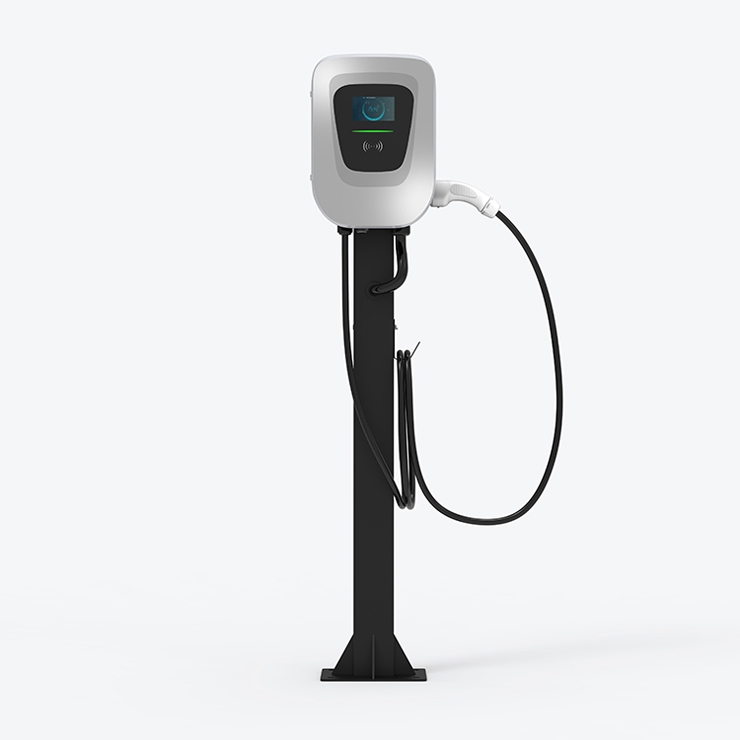
Products
Fast, Reliable, Everywhere

Solutions
Efficient, Innovative EV Charging Solutions.
News
We are committed to the innovation and application of EV charging.
A device known as an electric car charger is used to charge electric cars (EVs) by transforming AC power from the electrical grid into DC power that may be stored in the vehicle's battery. Electric vehicle chargers come in various designs, from slow chargers, which can take several hours to completely charge an EV, to rapid chargers, which can charge an EV in as little as 30 minutes.
Electric car charger can be installed in public charging stations, at work, and home. Several EV manufacturers also provide home charging stations made especially for EVs.

If you own an electric car, installing an electric charger is worth the effort, which might be challenging. To aid you in the procedure, consider the following advice:
The first step is to know what kind of charger you require. The slowest, Level 1 charger may be connected to a conventional 120-volt outlet and is often the least expensive. A 240-volt outlet is needed for Level 2 charges, which are quicker. The quickest, most costly, and most professionally installed fast chargers are DC models.
The next step is to locate your charger properly. It works best to put it close to where you leave your car. Consider the distance to your electrical panel, if additional wiring is required, and any applicable municipal rules or ordinances.
You should inspect your electrical system before installing your electric vehicle charger. A dedicated circuit and sufficient electrical capacity are required to manage the increased demand. You might need to modify your electrical panel or service to comply with the regulations.
You may start installing the charger once you've decided what kind of charger you want, selected the ideal position, and examined your electrical system. Installing a Level 1 charger is as easy as plugging it into a regular socket. You must hire a licensed electrician to install a 240-volt outlet and hardwire the charger to the circuit if you're installing a Level 2 charger.
Test the charger to ensure correct operation when the installation is finished. Check to see if you’re automobile is charging at the anticipated rate by plugging it in. Consult the manufacturer's instructions or contact a licensed electrician if you discover any issues.
Congratulations! You've placed your electric vehicle charger successfully. The ease of charging your automobile at home means you no longer have to worry about running out of fuel while driving. Always keep safety in mind when working with electricity. Never hesitate to ask a qualified electrician for help if you have any questions regarding any step of the installation procedure.
Advantages of electric car charger:
Electric vehicle (EV) owners should consider investing in electric car charger because of their numerous advantages. The following are a few of the major benefits of electric car chargers:
An electric car charger's convenience may be its most evident advantage. You may charge your car at home rather than searching for a public charging station or relying on the constrained range of your EV. This means you won't ever have to worry about running out of battery while driving since you can always start your day with a full battery.
Long-term financial savings are another benefit of electric car charging. The price of utilizing a public charging station might vary greatly based on the location and service provider. In comparison, charging your car at home using an electric charger is frequently significantly less expensive. Special rates or incentives that some utility providers provide to EV owners may further decrease your charging expenses.
Electric car chargers magnify the environmental advantages of EVs, which are frequently highlighted. You may dramatically lower your carbon footprint by recharging your automobile using clean energy like solar or wind power. The emissions from travelling to a public charging station are also eliminated when you change your car at home.
Another way to raise the value of your property is to install an electric car charger. Having a home charging station may be a huge selling factor for potential buyers as more and more people move to electric vehicles. Also, some local governments reward EV owners who set up charging stations, which can boost the return on your investment.
Lastly, you may future-proof your home by adding an electric car charger. A home charging station will be more crucial as more EVs are on the road and public charging infrastructure gets congested. Make sure that you are ready for the future of transportation by installing a charger immediately.
Electric car charger provides EV owners various advantages, including cost savings, convenience, and environmental advantages. If you own an EV, investing in a home charging station is a wise choice that will pay off in the long term. In this work, an optimization approach is used to improve the onboard charger of an EV to meet the requirements of rapid charging. Someone new to electric vehicles could require assistance comprehending fees.. The technical support team at PIWIN can provide clients with knowledgeable assistance and timely solutions to their questions.
